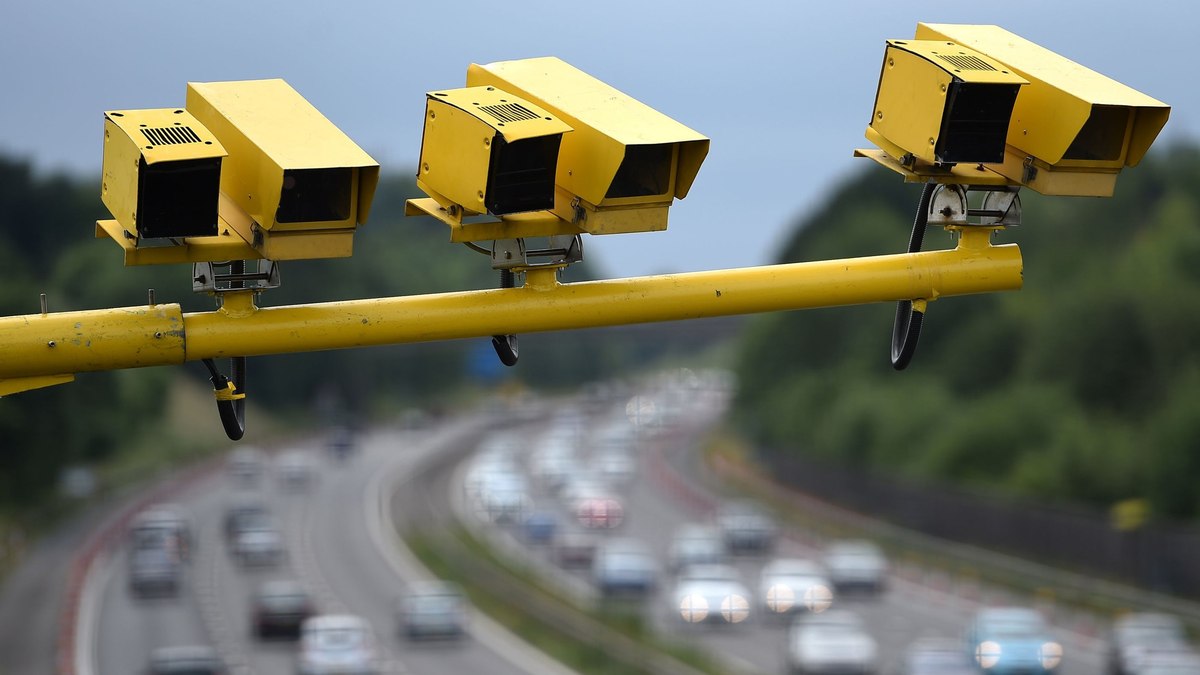A Police and Crime Commissioner threatened this week to ‘max out’ on his use of speed cameras simply to raise enough money to avoid having to sack police officers he couldn’t otherwise afford.
He also floated the idea of allowing commercial advertising on police patrol cars to generate a bit more cash. He was responding to the cuts in police budgets expected to be confirmed in the chancellor’s autumn statement. Is the government spending too little on the police? And, if so, who should make up the shortfall?
Olly Martins, the elected police and crime commissioner for Bedfordshire, told the Home Affairs select committee of the House of Commons that he felt the need to take ‘desperate measures’ to maintain his budget and that he was ‘likely to be left with no option’ but to turn on permanently the speed cameras on the M1 between junctions 10 and 13. He told MPs: ‘I’m running out of levers to pull. Strict enforcement of the speed limit could raise £1million, and to me that’s better than losing 25 more police officers.’ When I interviewed him he assured me that this was no idle threat and he was entirely serious
He also said he was considering selling advertising space on his patrol cars to companies like easyJet, a big operator out of Luton airport. He did, though, say: ‘I would much rather that the government adequately funded Bedfordshire Police rather than scrabble around to find other options to keep it viable’.
His idea of getting speeding motorists to fund his shortfall is controversial because ever since speed cameras were introduced around Britain it has been insisted that they were a road safety measure rather than a means of raising revenue. They were not a ‘cash cow’. A similar claim has been made about parking meters, intended to regulate parking rather than raise money, yet many councils have been candid about how much they now depend on the revenues from parking meters and from issuing parking tickets to those who park where they shouldn’t.
The use of speed cameras to raise money has even led to the charge of corruption against the police. Some police authorities have been accused of waiving the rules on whether speeding motorists should be fined and have their licenses endorsed in favour of sending them to speed awareness courses and so avoiding the endorsements. The point made is that money from fines goes straight to the Treasury whereas the profit made from organising awareness courses stays with the police.
Roger Lawson of the Alliance of British Drivers, said: ‘It is a case of holding motorists to ransom and not only that, it shows the police motivation for waiving prosecutions is simply money. This is simple corruption of the police and a criminal offence. They should know better.’
All of this is a result of the police feeling squeezed. Over the last five years the number of police officers in England and Wales has fallen by 17,000. There are 23% fewer traffic officers. Since 2010 the Home Office has been among the ‘unprotected’ government departments, unlike health, schools, overseas development and (since the election) defence, which have had their budgets protected. With the government determined to get its finances back into surplus by 2020, departments such as the Home Office face yet further, swingeing cuts. After the Tories’ victory in the election in May, George Osborne, the chancellor, ordered unprotected departments to come up with ideas as to how their budgets could be cut by up to 40%.
Almost all police forces in the country are up in arms. Steve Finnigan, the chief constable of Lancashire Police, told MPs he was ‘upset and outraged’ at the prospect of having to find £25m worth of cuts. He said: ‘What we are going through is completely unprecedented. It makes our mission or purpose, which is essentially to keep people safe from harm, and especially the most vulnerable in our communities, absolutely very difficult.’
Rural police forces feel particularly victimised because of the formula used to calculate how much each force needs to cut. It is in part based on how many pubs and bars there are in each area. Inevitably, because rural areas have fewer, they expected to make more far-reaching cuts even though they say there’s just as much crime. Cumbria Police face cuts of 15.8%
The cuts have led some police forces to announce that they no longer respond to certain crimes. Lynne Owens, the chief constable of Surrey, told MPs her force did not follow up cases of petrol theft any more. Others no longer give attention to shoplifting, car break-ins or motorists spotted using their mobile phones while driving. One force said it could no longer pursue drivers caught speeding below 82mph because it did not have enough staff to process the paperwork. Some forces in rural areas are encouraging local residents to do their own policing of speed cameras in their villages.
The government’s response to this has been to claim that, despite the cuts to police spending, crime has fallen in the country over the last five years. So it seems pretty unlikely that they will give into the police. Hence Mr Martin’s resort to ‘desperate measures’.
Some will argue that if he does turn on the speed cameras permanently on his stretch of the M1 he will be doing the right thing – even if it’s for the wrong reason. Either motorists will take the message and slow down, which can only be to the good of road safety; or Mr Martins will raise his revenue and be able to pay all his officers.
Others will argue that this is not how things should be done. Politicians frequently say that the first priority of government is to keep the public safe and that the honest way to do that is to raise enough money through taxation to pay for it.









